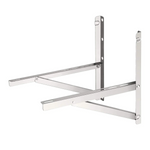As summer approaches, detecting refrigerant leaks in your air conditioning (AC) unit early can save you discomfort, costly repairs, and potential health risks. Refrigerant leaks reduce cooling efficiency, increase energy bills, and can damage the environment. Fortunately, both simple DIY checks—like the soap‑bubble test—and built‑in refrigerant leakage sensors on modern R32 systems help you spot leaks quickly.
Why Refrigerant Leaks Pose a Threat
Refrigerant is the lifeblood of your AC’s cooling cycle; when it leaks, the system can’t absorb and transfer heat effectively, leading to poor cooling and frozen coils. Low refrigerant also forces the compressor to work harder, raising energy consumption and wear. Beyond performance, many refrigerants contribute to global warming if released, making early leak detection an environmental imperative.
Common Signs of a Refrigerant Leak
Hissing or Bubbling Noises
A distinct hissing or bubbling sound near AC coils or refrigerant lines often indicates gas escaping under pressure. Larger leaks may even produce a liquid‑like gurgling noise as refrigerant and oil escape together.
Reduced Cooling and Longer Run Times
If your AC is running but failing to reach set temperatures, low refrigerant is a prime suspect—especially after ruling out dirty filters or thermostat issues. You may notice the unit runs continuously without achieving comfort, a hallmark of insufficient refrigerant.
Ice Formation on Evaporator Coils
Leaks cause evaporator coils to drop in pressure and temperature, sometimes freezing condensation into ice. Ice buildup further restricts airflow, compounding cooling problems.
Spiking Energy Bills
An undercharged system loses efficiency, drawing more amps to cool. Unexpectedly high electricity bills can signal a hidden refrigerant leak forcing your compressor to overwork.
DIY Detection Methods
Soap‑Bubble Test
A time‑tested technique involves coating suspect joints or lines with soapy water; bubbles form where gas escapes. While simple, it can miss tiny leaks and leaves residue to clean up.
Electronic Leak Detectors
Handheld “sniffers” sense refrigerant molecules in the air, alerting you to even small leaks. These devices are more sensitive than soap bubbles and can pinpoint leaks in hard‑to‑see areas.
Role of Refrigerant Leakage Sensors in R32 Systems
Due to safety and environmental regulations, many modern AC units using R32 refrigerant include built-in leakage sensors that automatically detect elevated refrigerant levels in the airflow. Under UL 60335-2-40 standards, sensor and control logic must trigger a fault and shut down the unit to prevent further release and hazard. TOSOT has equipped most of its R32 units with refrigerant leakage sensors for safety concerns.
What to Do If You Suspect a Leak
- Shut Down the Unit: Prevent compressor damage and further refrigerant loss.
- Call a Licensed HVAC Technician: Refrigerant handling requires EPA certification; professionals use recovery machines and pressure testing to repair and recharge safely.
- Check Sensor Fault Codes: R32 units will display error codes on the control panel if the leakage sensor trips—note the code for the technician.
- Document Symptoms: Record noises, cooling performance, and runtime. This helps the technician locate leaks and verify proper repair.
Refrigerant leaks compromise comfort, inflate energy bills, and pose environmental risks. By watching for hissing sounds, poor cooling, ice buildup, and unusual energy use—and by employing soap‑bubble tests or electronic detectors—you can catch leaks early. R32 systems with built‑in leakage sensors add automatic protection, shutting down the unit at the first sign of escaping gas. If you suspect a leak, power off the AC and enlist a certified HVAC professional to repair, test, and recharge your system, ensuring safe and efficient summer cooling. If you need further assistance, please feel free to contact support@tosotdirect.com.





